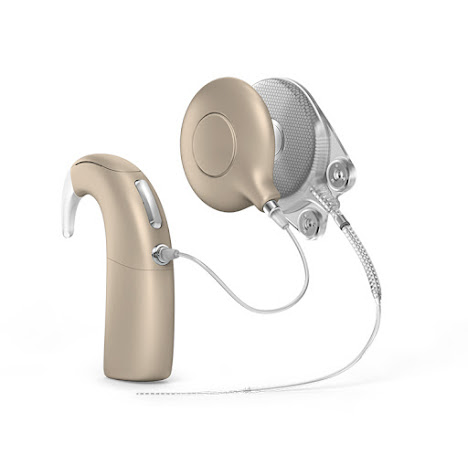Cochlear Implants Market Continues to Grow with Cochlear Ltd. receiving the U.S. FDA approval for three new hearing devices
A cochlear implant is a surgically
implanted device to give an individual with mild to severe sensorineural
deafness a modified sensory perception of sound. CI deafness bypasses the
natural audible sound process to replace it by sending electric signals that
directly reach the sensory nerve. The electrical signal is processed by the
cochlea in the inner ear and then sent to the brain where it decodes and sends
the desired sound or tone. In many cases, this device is used as a hearing aid
with the purpose of improving a person's hearing. The demand for cochlear
implants has increased steeply in the recent past. This is typically due to
hearing impairment are rising geriatric population. As per the World Health
Organization (WHO), by 2050, the global population aged 65 years and above is
expected to reach around 2 billion increasing from 900 million in 2015.
According to the Administration Community Living (ACL), the population aged 65
years and above increased from 37.2 million in 2006 to 49.2 million in 2016 in
the U.S. Such a high population of geriatric population is increasing the
demand for cochlear implants. Thus, these factors can augment growth of the
cochlear implants market.
The basic theory of how cochlear
implants work is actually quite simple. The cochlea is made up of several tiny
hair-like branches. Each of these branches receives electrical signals from the
audiologist, which are then transmitted to the brain. The brain then translates
the signal and translates it into a pitch and tone that can be understood by
the individual suffering hearing impairment. The demand for cochlear implants
is also driven by technological advancements and increased battery life of
cochlear implants. These implants have improved significantly over the years
with long-lasting battery life and better audibility. Such factors can
stimulate growth of the cochlear
implants market in the near future.
Recently, in July 2020, Cochlear Ltd
received the U.S. Food and Drug Administration (FDA) approval for three new
hearing devices namely Kanso 2 Sound Processor, Nucleus Sound Processor, and
Nucleus 22.
That being said, these implants are
expensive and require frequent maintenance, which incurs additional costs.
Furthermore, there is a risk of potential injuries in surgery, which could
impede growth of the cochlear implants market
In terms of regions, developed
regions such as Europe are gaining rapid traction in the cochlear implants
market. This is due to the fact that there is a high awareness regarding
hearing aids as well as the availability of advanced centers for rehabilitation
after surgery. Similarly, Asia Pacific has also shown promising signs related
to the demand for cochlear implants since urbanization is rampant in emerging
economies such as India and China.




Comments
Post a Comment